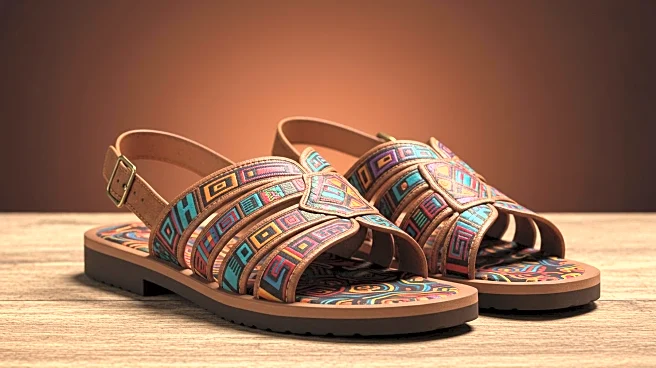What's Happening?
Adidas has issued a formal apology following criticism from Mexico President Claudia Sheinbaum regarding a new shoe design that replicates traditional Indigenous huarache sandals. The controversy arose after the release of the 'Oaxaca slip-on,' which was inspired by designs from Oaxaca, specifically Villa Hidalgo Yalálag. Adidas acknowledged the oversight and expressed a commitment to engage in respectful dialogue with the Yalálag community to honor their cultural legacy. The shoe, designed by Mexican-American designer Willy Chavarria, features a black sneaker sole with a leather weave typical of Mexico's huarache sandals. Chavarria also apologized for not developing the design in partnership with the Oaxacan community.
Why It's Important?
This incident highlights the growing scrutiny multinational brands face regarding cultural appropriation and the origin of their designs. It underscores the importance of respecting and crediting Indigenous communities for their cultural contributions. The backlash against Adidas reflects broader societal demands for ethical practices in fashion, where companies are expected to collaborate meaningfully with local artisans and communities. The situation also points to potential legal implications, as Mexico is exploring ways to support Indigenous communities whose designs are used without proper attribution or compensation.
What's Next?
Mexico's administration, led by President Sheinbaum, is considering legal avenues to protect Indigenous designs from being appropriated by large companies. This could lead to new regulations or policies aimed at safeguarding cultural heritage and ensuring fair compensation for local artisans. Adidas may need to reassess its design processes and establish more robust partnerships with Indigenous communities to prevent similar controversies in the future. The fashion industry as a whole might see increased pressure to adopt more transparent and ethical practices.










